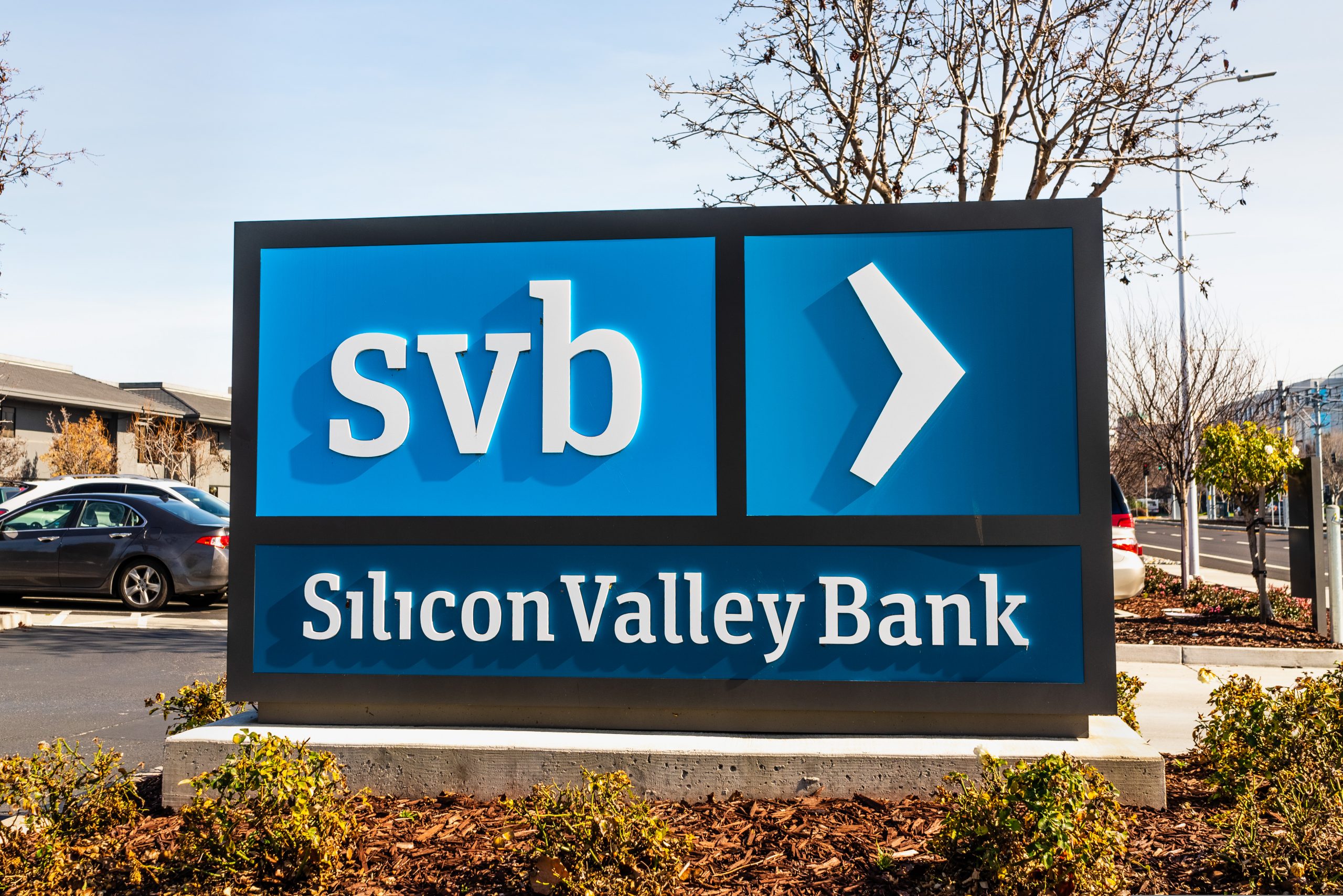

All investors use insights, trends, and data from across the globe to help them make decisions. Between the lines is an easy way for you to understand how a current topic might be impacting markets and influencing your investments.
The shuttering of a previously unknown US bank sent shock waves through global markets. Its closure played a small part in the subsequent closure of two more minor US banks, the rescue of a third, and the hasty ‘shot-gun wedding’ arranged for Credit Suisse. However, despite stock market volatility, there’s no systematic crisis in the banking system.
Silicon Valley Bank (SVB) passed into receivership on 10 March after the small lender to California’s tech start-up community revealed a £1.6bn loss on the sale of its long-dated government bond holdings. The news resulted in a desperate race to re-capitalise that floundered almost immediately and triggered a ‘run’ on the bank. Although relatively minor, it was the second-largest US banking failure in history and the resulting panic caused several other struggling banks to also fail.
Two very minor US banks, Signature Bank and Silvergate, that were exposed to the upheaval in the cryptocurrency market, have since folded, while another US regional bank, First Republic Bank, has been rescued in a private sector deal fronted by the US Treasury and JPMorgan. As part of the deal, 11 Wall Street giants will deposit billions to staunch a similar run on the bank, ironically, returning a small portion of the huge depositor inflows they’ve received because of the sudden confidence crisis.
Within days of the US deals, the Swiss government had invited Switzerland’s biggest bank, UBS, to buy its ailing rival Credit Suisse, following at least a decade of poor management, losses, and scandals of every hue, which had earned it the reputation of being Europe’s weakest major bank. As a result, when depositors began to lose confidence, the ailing Credit Suisse was in the eye of the storm and its shares fell. The deal has, no doubt, stopped a potentially far more serious contagion of global markets than the recent re-shuffle in the lower orders of the US banking system.
Despite its size and fundamental importance to the global financial system, banks rely entirely on investor confidence. Should it suddenly dissipate, even the largest banks can find themselves in jeopardy. This is the only thread that runs between the US banks that failed (including the tiny UK outpost of SVB absorbed by HSBC) and the rescue of Credit Suisse. The underlying increase in the cost of money brought about by the most aggressive interest-rate hiking cycle for three decades or more and the massive decline in the value of government bonds has caused severe difficulties for less well-capitalised banks and this is starting to tell.
While monetary authorities have demonstrated that they will do whatever it takes to shore-up confidence in the banking system, last week central banks made it clear that fighting inflation remains their top priority with new interest rises in the US, UK, and Switzerland following on from a European rate hike the previous week.
Monetary authorities in the US, Switzerland, and the UK have acted with speed to shore-up the banking system.
Several small banks in the US have failed while Switzerland’s Credit Suisse has been absorbed by UBS.
There is no systematic risk but rising interest rates and falling bond prices are exposing the most vulnerable banks.
By clicking this link you are departing from the regulated site of Ablestoke Financial Planning LLP.
Neither Ablestoke Financial Planning LLP nor Quilter Financial Planning accept responsibility for the accuracy of the information contained with this site.
Open Link